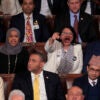House Judiciary Chairman Bob Goodlatte, R-Va., has reignited the debate over state taxes on out-of-state (mostly internet-based) sales in releasing draft legislation to allow such sales to be taxed under simplified rules.
The bill—the Online Sales Simplification Act of 2016—is a marked improvement over the fatally flawed Marketplace Fairness Act, which the Senate passed in 2013. Nevertheless, the new bill itself has troublesome shortcomings that must be addressed.
The current rules for taxing out-of-state sales were established by the Supreme Court in the 1992 case of Quill v. North Dakota.
Under Quill, states can require businesses to collect their sales taxes only if those businesses have a physical presence (a building, warehouse, or employees) in their state. For instance, if a customer living in Virginia buys a product from a retailer with a physical presence only in Maryland, the customer pays no sales tax because Virginia can’t force the Maryland retailer to collect the tax.
Despite the popular misconception that the Supreme Court’s 1992 ruling exempts internet sales from state sales taxes, it does no such thing. In fact, under current rules, the bulk of internet-based sales is taxed, due to the extensive national presence of leading internet retailers.
However, the decision does limit the reach of out-of-state tax collectors, protecting small online sellers from having to deal with burdensome rules imposed by thousands of localities nationwide.
This commonsense rule long has rankled state tax collectors, who don’t want to lose potential tax revenue, as well as many brick-and-mortar retailers, who complain that their online competitors enjoy an unfair tax advantage.
In 2013, the Senate passed the Marketplace Fairness Act to override the high court’s Quill decision and force retailers to collect taxes from out-of-state buyers. But the plan got nowhere in the House. A similar bill, by Rep. Jason Chaffetz, R-Utah, is pending there.
Goodlatte’s plan takes a different tack. Instead of requiring retailers to identify and collect sales taxes for the thousands of jurisdictions in which their customers may live, taxation would be based on the rules defining the tax base of the seller’s home state.
The actual rate paid still would be determined by the buyer’s home state. Each state would be required to set a single tax rate for this purpose, rather than have retailers sort through the multitude of local rates that otherwise would apply. That rate could be no higher than the statewide rate plus the weighted average local rate.
While far preferable to the Marketplace Fairness Act, the plan is a step back from an earlier proposal circulated last year by Goodlatte. That plan would have based tax rates—as well as the rules defining the tax base—on the rates in the seller’s home state rather than the buyer’s.
This straightforward, “origin-based” approach already is used for in-person sales in which a customer physically travels to another state to buy a product.
The provision was dropped, however, out of concern that it would engender too much tax competition among states. This was a step in the wrong direction. Tax competition—like other forms of competition—often provides benefits to consumers.
The new bill is problematic in other ways.
Most troublesome is a provision requiring retailers in states that impose no sales taxes to do one of two things: 1) collect tax based on an alternate tax base (defined as the base in the state where the seller has the most gross receipts) and apply the buyer’s home state rate (it is unclear how this would work when the buyer is from a no-sales tax state), or 2) report information about the sale to the buyer’s home state.
In either case, retailers would face a regulatory burden that their own state specifically had declined to impose on them. Such a federally required obligation represents a dangerous extension of the reach of state tax collectors.
Goodlatte’s compromise plan is an improvement over the more intrusive Marketplace Fairness Act. Specifically, it addresses concerns over the complexity and cost of compliance that retailers would face.
Yet, the Goodlatte bill still falls short, unduly limiting the prerogative of states to decline to tax their own citizens. This and other problems must be addressed before Congress moves forward with any reform plan.































